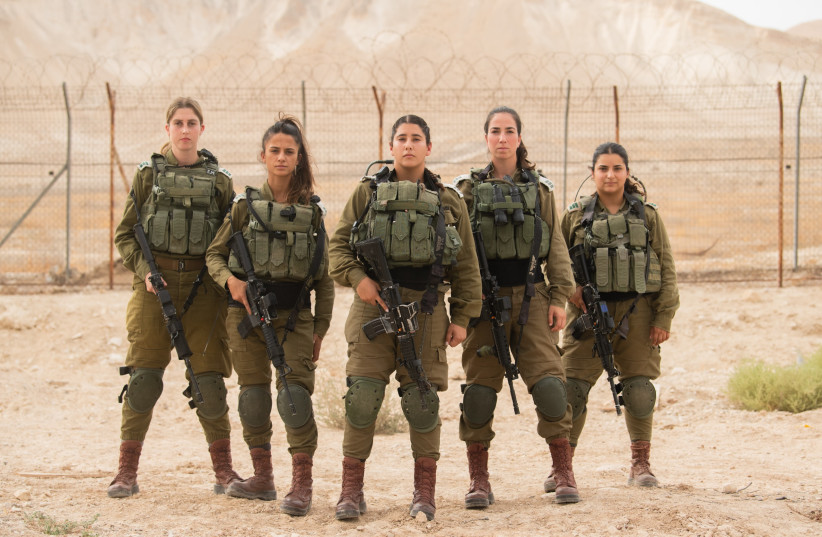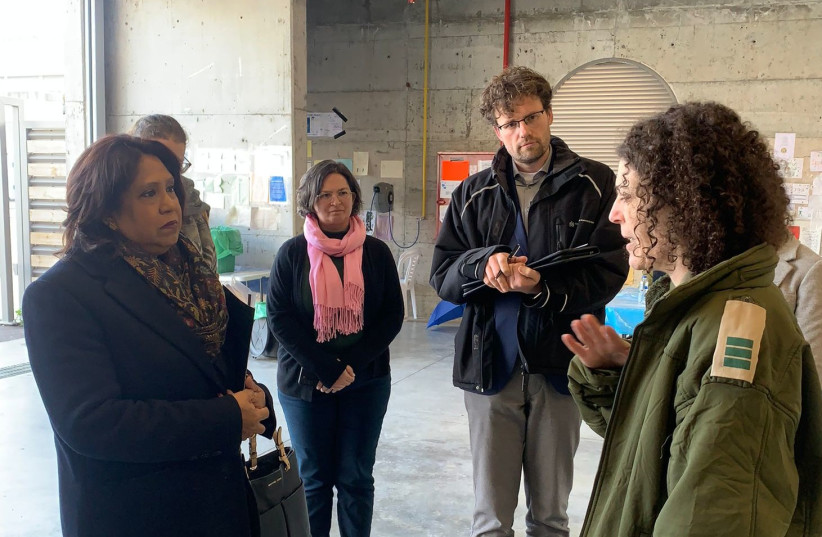The Israel Democracy Institute (IDI) released an analysis on Tuesday outlining recent issues facing Israeli women, including decreased representation and higher levels of violence.
The analysis, authored by Anat Thon-Ashkenazy, Director of the IDI’s Center for Democratic Values and Institutions, focuses on the impact of the Israel-Hamas war on Israeli women and other critical issues since the start of 2024.
“Many unique challenges stand in the way of the optimal and equal integration of women in decision-making centers in the State of Israel and providing full security from all forms of violence,” Thon-Ashkenazy wrote.
Impact of the Israel-Hamas war on women
As of May 27th, slightly over 20% of the fatalities in the Israel-Hamas war were reportedly women, the IDI noted.
According to the analysis, 19% of reserve duty personnel are currently women. Additionally, the war is taking both an emotional and physical toll on women in other essential positions, like social workers, teachers, and physicians.

In March, UN Special Representative on Sexual Violence in Conflict Areas Pramila Patten published a report revealing evidence of rape and sexual violence committed against Israeli women held captive by Hamas.
The report noted that, in response, the UN Secretary-General expressed regrets over the report's findings but “has yet to see fit to convene the Security Council to discuss the report.”
Dwindling representation of women
The IDI report went on to state that women are severely underrepresented across important national and local government roles.
In the February and March elections, 14 women were elected, six of whom were in municipalities that had never had a female mayor previously. The analysis found that in 2018, 15 women were elected as municipal heads, and there has been no increase in the number of female mayors elected.
Currently, six out of 38 ministers are women. Only one out of 14 members of the security cabinet is a woman. Additionally, there are no women on the negotiating team for the return of the hostages taken during the Israel-Hamas war.
In the Supreme Court, four out of 13 justices are women.
In previous elections, some municipalities saw the defacement of female candidates’ campaign signs. According to a survey from the Viterbi Center at the IDI, 72% of the public, including 64% of the ultra-Orthodox community and 57% of the Arab public, supports increased enforcement against defacement.
Rising rates of domestic violence against women
As of May, 12 women were murdered from domestic violence in 2024 — a number higher than the amount of women killed in the same period last year. According to the IDI analysis, 200,000 women in Israel face domestic violence.

IDI analysts fear the prevalence of domestic violence will continue to rise based on patterns seen during previous Israeli crises, including wars and the COVID-19 pandemic.
There are currently no visible increases in budget allocations towards preventing domestic violence, the analysis added.
“At this time, when Israeli society is at a crossroads, and there is an urgent need to rehabilitate and strengthen many aspects of Israeli public life, gender equality must be included as an essential and integral part of any plan to rebuild a better future,” Thon-Ashkenazy stated.
